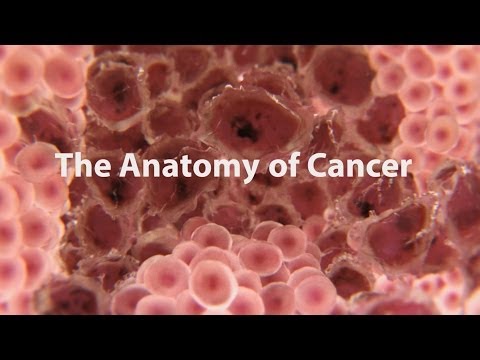Early-stage cancers refer to cancers detected at an initial stage, where the disease is localized and hasn’t spread to other parts of the body. Detecting cancer early significantly improves treatment success and survival rates.
This article explores the importance of early detection, common types of early-stage cancers, symptoms to watch for, and the treatment options available.

What Are Early-Stage Cancers?
Cancers are categorized into stages to describe their severity. Early-stage cancers are typically Stage 0 or Stage I, where abnormal cells are confined to their original site or surrounding tissue.
Early detection is critical because the cancer:
- Has not invaded nearby tissues.
- Is easier to treat.
- Offers higher survival rates compared to advanced stages.
Why Early Detection Matters
According to the American Cancer Society, early detection can save thousands of lives annually. Screening tests like mammograms, colonoscopies, and Pap smears are essential tools in identifying cancers at an early stage.
A study in the USA found that cancers diagnosed at early stages had a 5-year survival rate exceeding 90% for several types, including breast and prostate cancer.
Common Early-Stage Cancers
1. Breast Cancer
- Detected during mammograms or self-exams.
- Signs include lumps, nipple changes, or unusual discharge.
2. Colorectal Cancer
- Screening via colonoscopy identifies polyps before they turn cancerous.
- Early symptoms might include blood in the stool or abdominal discomfort.
3. Prostate Cancer
- PSA blood tests help detect this cancer early.
- Often asymptomatic in early stages.
4. Skin Cancer (Melanoma)
- Visible changes in moles or new skin growths can signal melanoma.
- Early removal is often curative.
5. Cervical Cancer
- Pap smears and HPV testing detect abnormal cervical cells before they become cancerous.
Symptoms of Early-Stage Cancers
Early-stage cancers often show mild or no symptoms. However, some general signs include:
- Unexplained fatigue.
- Persistent low-grade fever.
- Unexplained weight loss.
- Changes in bowel or bladder habits.
- Skin changes, such as new moles or sores that don’t heal.
“If you notice persistent changes in your health, consult your doctor. Early detection can be life-saving.”
How Are Early-Stage Cancers Diagnosed?
Diagnosis involves screenings and tests based on your risk factors, family history, and symptoms.
1. Imaging Tests
- Mammograms, ultrasounds, or MRIs detect abnormalities.
2. Lab Tests
- Bloodwork, such as PSA tests for prostate cancer or CA-125 for ovarian cancer.
3. Biopsies
- Tissue samples confirm the presence and type of cancer.
4. Genetic Testing
- Identifies inherited mutations, such as BRCA1/2 for breast cancer.
Treatment Options for Early-Stage Cancers
Treatment for early-stage cancers is often less invasive and more successful. Options include:
1. Surgery
- Removes tumors or abnormal tissues.
- Example: Lumpectomy for early-stage breast cancer.
2. Radiation Therapy
- Targets cancer cells while sparing healthy tissue.
3. Targeted Therapy
- Focuses on specific cancer-causing proteins or genes.
4. Lifestyle Changes and Monitoring
- In some cases, early-stage cancers can be managed through active surveillance.
Prevention and Early Detection Tips
Preventing early-stage cancers involves proactive measures:
- Regular Screenings: Follow screening guidelines for your age and risk factors.
- Healthy Lifestyle Choices: A diet rich in fruits, vegetables, and whole grains supports immune health.
- Avoid Tobacco and Alcohol: Both are significant risk factors for many cancers.
- Know Your Family History: Share this with your doctor for personalized screening recommendations.
- Self-Exams: Regular self-checks for skin, breast, and testicular abnormalities are essential.
Visit medicaltimes.io for detailed tips on prevention and detection.
Support and Living Well with Early-Stage Cancer
Early-stage cancer can be an overwhelming diagnosis, but it is highly treatable. Support networks, counseling, and trusted healthcare providers can help you navigate the journey. The USA offers numerous resources, including cancer support groups and survivorship programs.
Top 10 Frequently Asked Questions (FAQs)
- What does “early-stage cancer” mean?
Early-stage cancer is confined to its origin, without spreading to other areas. - Can early-stage cancer spread?
If untreated, it may progress to advanced stages. - Are early-stage cancers curable?
Many are curable with timely and appropriate treatment. - What are the most common early-stage cancers?
Breast, colorectal, prostate, skin, and cervical cancers are commonly detected early. - How often should I get screened?
This varies by age, cancer type, and personal risk. Discuss with your doctor. - Do all cancers have early symptoms?
No, many early-stage cancers are asymptomatic, highlighting the importance of screenings. - How can I prevent early-stage cancer?
Maintain a healthy lifestyle, avoid smoking, and get regular screenings. - Are early-stage cancer treatments painful?
Treatments like surgery or radiation are generally well-tolerated with minimal discomfort. - What’s the survival rate for early-stage cancer?
It exceeds 90% for several cancers when detected early. - Can lifestyle changes reduce the risk of cancer recurrence?
Yes, a healthy diet, exercise, and avoiding harmful habits reduce recurrence risks.
Ref. Websites :
Definition of early-stage cancer – NCI Dictionary of Cancer …
Early Cancer Warning Signs: 5 Symptoms You Shouldn’t …
Cancer Staging | Has Cancer Spread | Cancer Prognosis
What Is Cancer? Symptoms, Causes & Types
